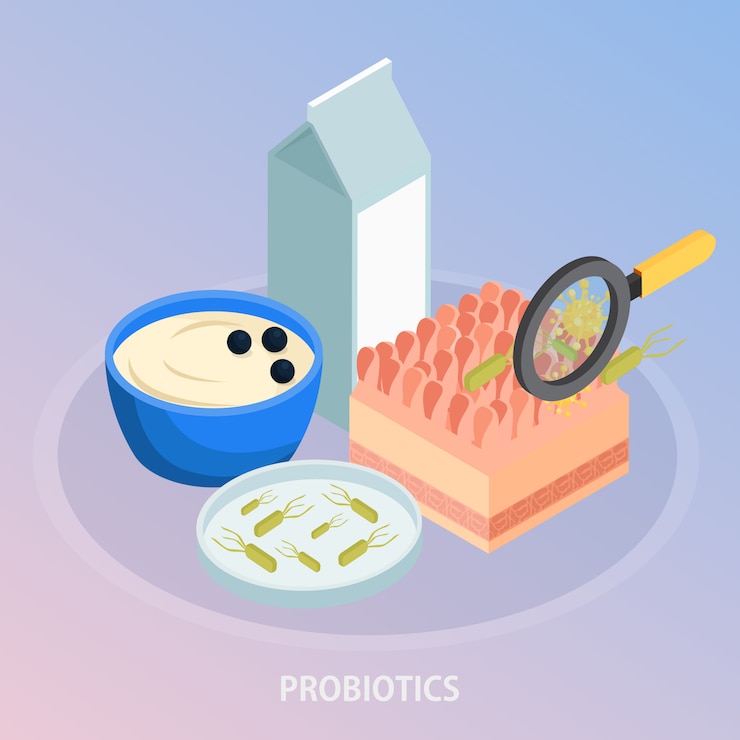
Demand for probiotics has increased in the healthcare sector due to their role in preventing bowel disorders, boosting immunity, alleviating traveler’s diarrhea, and managing postmenopausal issues in women. Probiotics are live microorganisms that promote gut health and are commonly found in cultured milk and fermented foods, with major applications in infant food production. Popular examples of probiotic-rich foods include Kefir and Kombucha.
The need for better gut health, stronger immunity during the COVID-19 pandemic, and overall wellness has significantly driven the popularity of probiotic drinks. The rising demand for healthy and functional food and beverages has also contributed to the growing sales of these products. Consumers are becoming more aware of the health benefits of probiotics, such as improved digestion and increased calcium absorption, making them a preferred addition to everyday diets.
Clinical research has highlighted the positive effects of probiotics on health. For example, clinical trials conducted on patients with functional dyspepsia revealed that consuming probiotics effectively treats some digestive issues. During one trial published in *The Lancet Journal*, 68 patients with functional dyspepsia were studied. Among them, 32 were given spore-forming probiotics Bacillus coagulans MY01 and Bacillus subtilis MY02, while the remaining 36 were given a placebo. The results showed that these specific probiotics were both safe and effective, further validating the health benefits of probiotics and fueling their demand in the market.
The probiotics industry is also witnessing significant growth due to new product launches, strategic partnerships, and investments by healthcare companies. For instance, in June 2022, Amway Korea partnered with the South Korean biotech start-up Human Effective Microbes (HEM) Pharma to introduce a precision probiotic service. This service analyzes stool samples to recommend personalized probiotics, promoting gut health and the production of short-chain fatty acids.
Similarly, Spanish pharmaceutical company Zinereo Pharma, in collaboration with biotech leader Probisearch SL, conducted clinical trials on new probiotics such as Fertibiome and Neobime. These trials demonstrated successful results, including improved fertility in couples and better gut health in premature babies.
Companies are also expanding their product lines to cater to the increasing demand for probiotics. For example, in June 2022, Hims & Hers Health, Inc., a U.S.-based telehealth firm, launched six probiotic supplements designed for women. These include products aimed at improving gut health, mental wellness, skin health, digestive function, and libido.
Major investments in the probiotics sector are addressing specific market demands. Nestlé S.A., for example, has been working to meet the rising demand for infant formula in the U.S. Following a product recall by Abbott Laboratories in early 2022, Nestlé began increasing the production of Gerber Good Start Gentle Infant Formula in Mexico and NAN Supreme Pro 1 and Pro 2 Infant Formula in Germany, supplying millions of additional bottles.
Acquisitions also play a significant role in market expansion. In May 2022, French food company Danone S.A. acquired Dumex, an infant nutrition brand, to expand its regional presence and customer base. Similarly, in 2018, Archer Daniels Midland Company bought Probiotics International Limited, a U.K.-based probiotics firm, to strengthen its presence in the European market and tap into new revenue streams.
These strategic initiatives, combined with increasing awareness of probiotics’ health benefits, are driving significant growth in the global probiotics market, with revenue expected to reach approximately $73.9 billion by 2030.